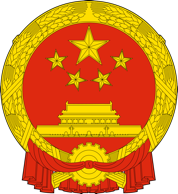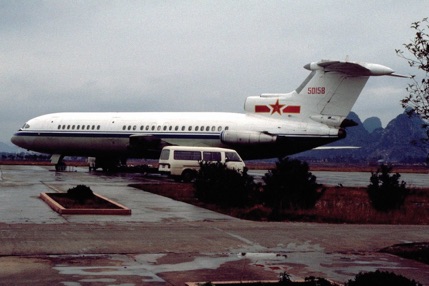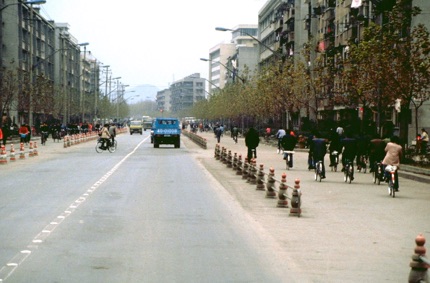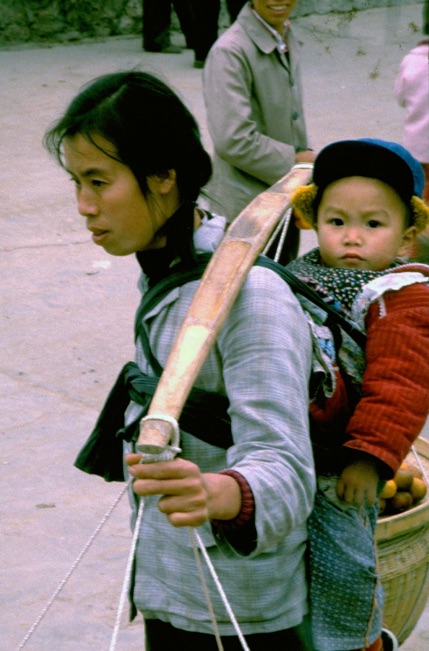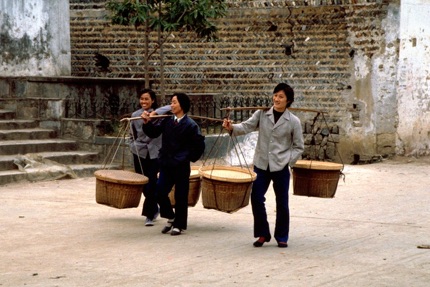China 1985

Kyrgyzstan and Tajikistan 2018

On this, our last day in Guilin, we began with a visit to Guilin Zoo. Actually, the first part of the visit through was a type of botanical garden, consisting of hundreds of bonsai trees arranged in Guilin-type formations through traditionally landscaped Chinese gardens. One of the students, who is quite an expert on plants, commented disparagingly that bonsai was simply a form of torture for plants. Within the zoo proper, we saw the lone panda sitting forlornly in its cage munching bamboo, and then we had a brief look at the lions, housed in bare concrete overcrowded cages of the form that may have used in Taronga Park a century or so ago. Between performing dolphins, Guilin Zoo and the free markets in Guangzhou, the animal liberationists would be either highly depressed or moved to radical activism in China.
From the zoo, we were taken to downtown Guilin city, where we were given half an hour for free exploring. We were dropped in a fairly new part of the city, and it lacked some character because of this. However, I managed to find a poster to purchase some propaganda posters, and it seemed I was lucky to do so as several students spent much of the trip om other cities trying to find a similar shop, but to no avail. During this walk, my camera (with new batteries purchased just before leaving Australia) began giving low battery charge warning signals. It was the beginning of a tension-inducing experience in search of new batteries (my geographical photographs mean quite a deal to me). The search only ended some five days later in Shanghai at the expense of too many underexposed photos in the meantime.
After lunch, we flew to Hangzhou in a People's Liberation Army Air Force (PLAAF) Hawker Siddeley Trident jet (registration 50158), brought into temporary charter service to assist with China’s tourism boom which had caused a shortage of airliners in the nation. Even the cabin staff had little metal MiG-21 fighter badges pinned to their uniforms rather than the usual CAAC logo. Hangzhou is one of China's ancient cities and was visited by Marco Polo back in the 1200s. With current population of about 750,000 people, it is now the capital city of Zhejiang province.
We arrived at the air force base in Hangzhou to be greeted by a temperature of 1 degree Celsius, although it was ‘fresh’ rather than ‘chilly’ because there was little wind. We drove through highly active vegetable growing fields (or, at least, the farmers in the fields were active) to arrive in Hangzhou city, which has a fascinating mixture of the very old and the industrial new.
To a large extent, the trip up to this point had been something of a holiday for the students, although they had been using their Chinese language in many situations. However, Hangzhou represented the first place where our students were to attend lessons in local schools, future school visits also being scheduled for Shanghai, Peking and Tangshan. Whereas the three later visits had been arranged by us through contacts established during a visit of Chinese headmasters to our school in Sydney in 1983, the Hangzhou visit was to be arranged by our travel agent. Unfortunately, there seemed to have been a communication problem prior to our arrival in Hangzhou, and the local guide was unaware that we were supposed to visit a school, and at first he seemed reluctant to arrange anything more than the common half-hour tourist visit.
The waiters and waitresses at our hotels in both Guilin and Hangzhou responded very warmly to the students’ renditions of Waltzing Matilda and Click Go the Shears, both in Chinese (they had been taught these songs prior to departure from Australia). Our group often became involved in reciprocal singing, with the waitresses returning our songs with embarrassed but beautiful Chinese traditional songs. What the other diners in the restaurants thought of all this can only be guessed, but they may not have appreciated all eight waitresses in a large dining hall singing around our table rather than serving them their meals. Certainly, a pair of Czechoslovak visitors in Hangzhou seemed less than amused by the waitresses’ lack of socialist dedication to duty. Because of the good response we had received from the songs, we spent that evening practising Australian folk songs in order to enrich our repertoire. It was an excellent experience in building community spirit within the group although the musical gains were probably marginal at best.
After the singing, at about 10:00pm, we noticed that it was snowing outside. For many of our boys, this was the first time they had ever seen snow, so it was not surprising that the first thing they did was to run outside and start a snow fight.

Day 7
Guilin to Hangzhou
Monday, 9 December 1985
